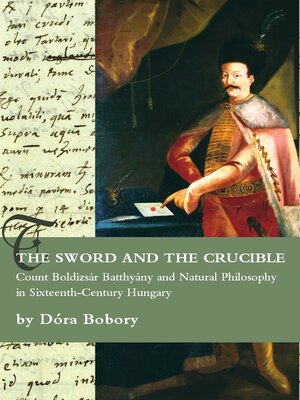The Sword and the Crucible. Count Boldizsár Batthyány and Natural Philosophy in Sixteenth-Century Hu
ebook
By Dóra Bobory

Sign up to save your library
With an OverDrive account, you can save your favorite libraries for at-a-glance information about availability. Find out more about OverDrive accounts.
Find this title in Libby, the library reading app by OverDrive.



Search for a digital library with this title
Title found at these libraries:
| Library Name | Distance |
|---|---|
| Loading... |
In the sixteenth century a new type of practitioner emerges in Europe: the aristocrat who not only supports creative activities, but is personally involved in the projects he finances. The courts of noblemen and other wealthy individuals are transformed into new sites of knowledge production where medicinal waters are distilled, exotic plants cultivated, and alchemical experiments pursued. This new fascination with nature, and the wish to explore and exploit its explicit and hidden mechanisms, was an intellectual trend that spread all over Europe, reaching even the easternmost parts of the Habsburg Monarchy. The Hungarian Count Boldizsár Batthyány (c.1542–1590), a powerful aristocrat and formidable warrior, was also a passionate devotee of natural philosophy. His Western Hungarian court was the focal point of an intellectual network which comprised scholars—such as the renowned botanist Carolus Clusius—physicians, book dealers, and fellow aristocrats from Central Europe and used his connections to exchange objects and information. Batthyány's biography, his extensive correspondence and up-to-date book collection on natural philosophy—especially alchemy, Paracelsian medicine, and botany—reveals that wealth, mobility and intellectual curiosity allowed him to share the enthusiasms of his Western European counterparts, and make the Muses speak even among arms.






